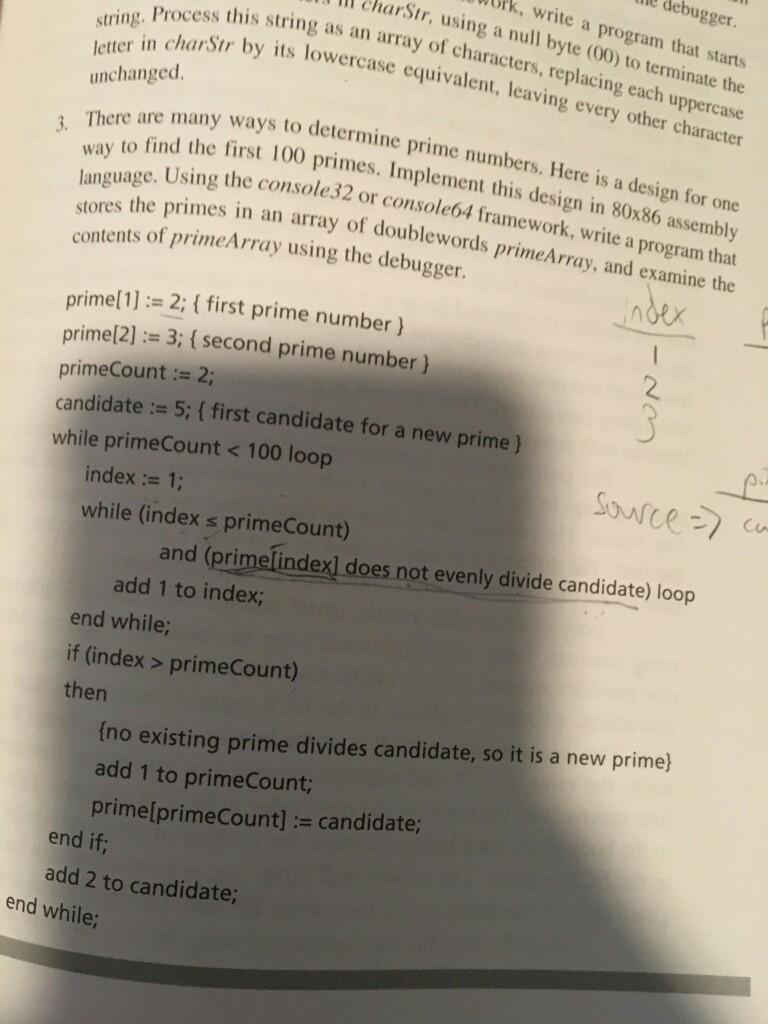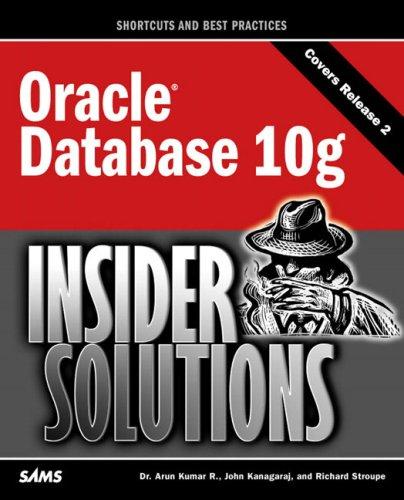Answered step by step
Verified Expert Solution
Question
1 Approved Answer
I have to do this problem for my assembly language class and whatever I'm doing isn't working, any help would be appreciated. There are many
I have to do this problem for my assembly language class and whatever I'm doing isn't working, any help would be appreciated. There are many ways to determine prime numbers. Here is a design for one way to find the first 100 primes. Implement this design in an 80x86 assembly language. Using console32 or console64 framework, write a program that stores the primes in an array of double words primeArray, and examine the contents of primeArray using the debugger.

l debugger. Urk, write a program that starts charStr, using a null byte (00) to terminate the ess this string as an array of characters, replacing each uppercase in charSir by its lowercase equivalent, leaving every other character unchanged ways to determine prime numbers. Here is a design for one Therd the first 100 primes. Implement this design in 80x86 assembly ng the console32 or console64 framework, write a program that s in an array of doublewords primeArray, and examine the stores the primes in contents of primeArray using the debugger. primel1]2; ( first prime number ) prime(2] 3; ( second prime number ) primeCount: 2; candidate 5; [ first candidate for a new prime while primeCount primeCount) then fno existing prime divides candidate, so it is a new prime) add 1 to primeCount; prime[primeCount]: - candidate end if add 2 to candidate; end while
Step by Step Solution
There are 3 Steps involved in it
Step: 1

Get Instant Access to Expert-Tailored Solutions
See step-by-step solutions with expert insights and AI powered tools for academic success
Step: 2

Step: 3

Ace Your Homework with AI
Get the answers you need in no time with our AI-driven, step-by-step assistance
Get Started


